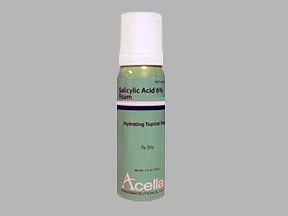
Salvax Coupons & Savings Card – Discount Prices from $99.70
Brand for: Salicylic acid
My prescription
Edit
200GM of 6%, Salicylic Acid (1 Can)
Select pharmacy

CVS
$106.86
COUPON PRICE
Albertsons
$99.70
COUPON PRICE
Walgreens
$139.12
COUPON PRICE
Walmart
$404.79
COUPON PRICESalvax savings card
Show this card to your pharmacist
Albertsons
$99.70
BIN
ID
PCN
GRP
019876
LHE69C2B14
CHIPPO
LHX
Powered by
Related beta hydroxy acids prescriptions
More prescriptions for warts
Related beta hydroxy acids prescriptions
More prescriptions for warts
Price history for Salvax (brand) & Salicylic Acid (generic)
1 Can, 200GM of 6%
Average retail price for Salvax
Average retail price for Salicylic Acid
Average SaveHealth price for Salicylic Acid
Our price history data is based on aggregated prescription data collected from participating pharmacies in America. Our prescription data updates daily to reflect the latest price changes. If you notice a missing data point, it means there wasn't sufficient data available to generate a monetary value for that date.
Over the last 12 months, the average discount price of Salvax is $317.49 using the SaveHealth savings card. That's an average savings of 37.87% on Salvax with our discount card.
*Retail prices are based on pharmacy claims data, and may not be accurate when we don't have enough claims.
Salvax (Salicylic Acid) dosage forms
Dosage Quantity Price from Per unit 200GM of 6% 1 Can $99.70 $99.70 200GM of 6% 2 Cans $191.90 $95.95 200GM of 6% 3 Cans $283.98 $94.66
| Dosage | Quantity | Price from | Per unit |
|---|---|---|---|
| 200GM of 6% | 1 Can | $99.70 | $99.70 |
| 200GM of 6% | 2 Cans | $191.90 | $95.95 |
| 200GM of 6% | 3 Cans | $283.98 | $94.66 |
Using the SaveHealth discount card, what is the price of Salvax without insurance?
Using the SaveHealth discount card, the price of Salvax without insurance is $99.70.
What is the price of Salvax at CVS?
The price of Salvax at CVS is $106.86.
What is the price of Salvax at Walgreens?
The price of Salvax at Walgreens is $139.12.
What is the price of Salvax at Walmart?
The price of Salvax at Walmart is $404.79.
